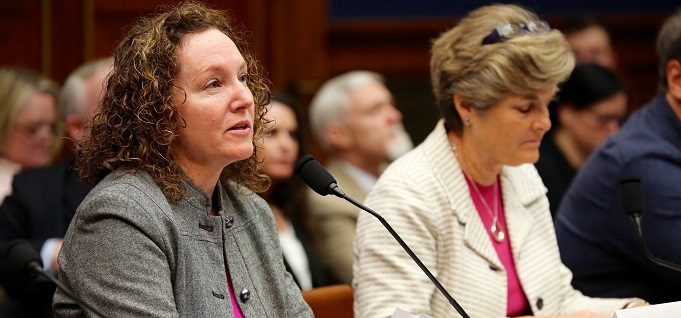The role of businesses in dual enrollment
By AACC 21st Century Center Staff
March 2, 2017
Partnerships between education and industry are creating more opportunities for high school students in Utah.
In Sandy, Utah, high school students in the Canyons School District earned 1,739 industry credentials last year. Students have the opportunity to start earning credentials and college credit as early as 9th grade, and getting industry certifications by their junior and senior years.
“With these credentials, students are prepared to be successful in their chosen field,” Janet Goble said in her testimony before the House Subcommittee on Early Childhood, Elementary and Secondary Education on Feb. 28. Goble is director of CTE for the Canyons School District.
This year, 44 CTE dual enrollment courses are being offered. The district is partnering with Salt Lake Community College (SLCC), and two local universities.
One of the keys to success, according to Goble, is business partnerships.
They support “real-world learning experiences for our students,” Goble said. “Through their interactions with industry professionals, students realize their coursework is relevant and, in fact, does translate into meaningful career skills and job opportunities.”
SLCC and the district have worked with the Utah Governor’s Office of Economic Development (GOED), industry partners to develop the Utah Diesel Technician Pathway. It’s led to partnerships with major diesel companies.
To fill the need for skilled workers in medical device manufacturing, SLCC and Canyons School District have partnered with GOED and several companies on a new Medical Innovations Pathway (MIP), which will begin this fall. SLCC will also offer the MIP pathway for adult learners.
Now, Utah Gov. Gary Herbert has announced the new Talent Ready Utah initiative. It encourages industry–education partnerships that offer work-based learning opportunities for students. Herbert’s goal is to fill 40,000 high-skill, high-wage jobs over the next four years.
Goble noted also noted the importance of the federal Perkins Act in supporting CTE.
Perkins Act reauthorization “should provide for substantive and ongoing consultation with employers and other local stakeholders, and offer the business community an important role in the development and implementation of CTE programs, including identifying relevant standards, valued credentials and industry-standard equipment,” Goble told legislators.
Learn more about the hearing of the subcommittee here.



